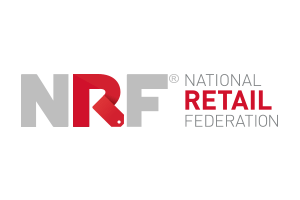 Given growing customer expectations of shopping anywhere, anytime and from any device, it’s not surprising that almost half of retailers surveyed for a new report from the National Retail Federation and FitForCommerce said omnichannel initiatives and investments were among their top three business priorities in 2015.
Given growing customer expectations of shopping anywhere, anytime and from any device, it’s not surprising that almost half of retailers surveyed for a new report from the National Retail Federation and FitForCommerce said omnichannel initiatives and investments were among their top three business priorities in 2015.
Yet there is significant room for improvement in terms of meeting those expectations, according to the report, the Omnichannel Retail Index.
The report identified Neiman Marcus, Nordstrom and The Home Depot as the top retailers in terms of omnichannel delivery, while Aldo, Cabela’s and Target were singled out as leaders in omnichannel returns.
When it comes to specific services, the report found the greatest number of retailers surveyed – 77% – offered buy in store, ship to home, followed by free shipping (58%) and providing total cost breakdown, including shipping (38%). However, just over a quarter of them (28%) offer buy online, pickup in store, a popular option among consumers.
“Ultimately, retailers need to stay flexible as they test,” the report said of omnichannel fulfillment initiatives. “Merging web, mobile and in-store SKUs is difficult, as is creating the right incentives and smooth processes to help employees set aside and pack inventory for customers who buy online. As always in innovation, some tests may not work initially and retailers have to be prepared to iterate and learn quickly to develop the right solution.”
Seventy percent of retailers surveyed process online returns in store, the report found. Of these, 89% have associates trained to handle them, while 93% accept both mobile and web returns. However less than half – 49% – offer free shipping on returns, something that most consumers covet.
Retailers who offer in-store returns of ecommerce orders “reduce their potential net loss in sales by leveraging the customer’s return trip to the store to make exchanges, substitutions or impulse purchases,” the report found.
Additionally, the report found that while more retailers offering free returns, many are limiting the categories for which they offer this perk. Examples of those implementing this practice include Amazon, Bloomingdale’s, Gap, Macy’s, Neiman Marcus, Nordstrom and Saks Fifth Avenue.
While holiday shoppers surveyed last year by StellaService said they expected a refund in seven days or less, the survey found that it took retailers an average of nine and a half days to issue the refund. Amazon of course offers instant refunds as long as the item is returned in 30 days, again setting the expectation bar higher for everyone else. “Refunds are another aspect of the returns process that need attention,” the NRF/FitForCommerce study concluded.
“The industry is moving fast, and keeping up with customer expectations is almost like an extreme sport, so there’s a lot of pressure on retailers to figure out how to deliver on the omnichannel promise” said Bernardine Wu, CEO of FitForCommerce. “The industry needed a tool to help retailers understand the customer’s perspective, provide insight on the omnichannel strategies being executed right now and help prioritize tactics moving forward.”
To develop the report, FitForCommerce mystery-shopped and evaluated 120 top retailers – 100 bricks-and-mortar and 20 pure-play ecommerce – across 21 vertical categories including apparel and accessories, consumer electronics, health and beauty and home goods.
